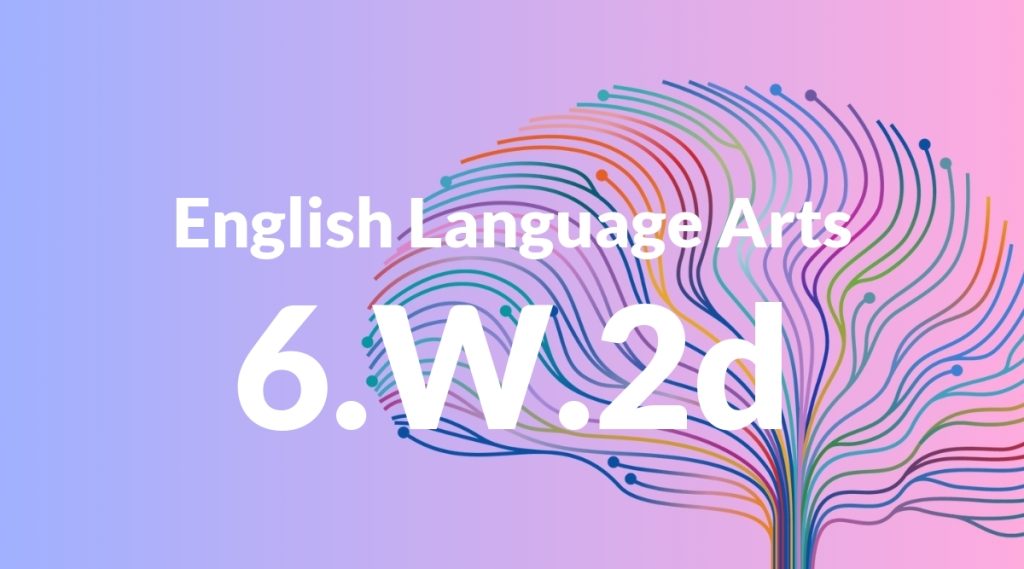Standard: 6.W.2d – Use precise language and domain-specific vocabulary to inform about or explain the topic.
Grade level: Grade 6
Subject: English Language Arts
Domain: Writing
Teacher Overview
This standard emphasizes the importance of using precise language and domain-specific vocabulary in writing. It helps students learn how to communicate their ideas clearly and accurately, which is a crucial skill for academic success and real-world communication. Students should have a foundational understanding of basic grammar, sentence structure, and general vocabulary. They should also be familiar with writing for different purposes and audiences.
After mastering this standard, students will be able to write more effectively across various subjects, using appropriate language to convey their ideas clearly. They will also be better prepared for advanced writing tasks in higher grades.
Common Misconception 1
A common misconception is that using big or complex words always improves writing. This is incorrect because clarity and appropriateness of word choice are more important than complexity.
Intervention 1
To address this misconception, provide examples of clear and effective writing that uses simple yet precise language. Conduct exercises where students replace complex words with simpler, more precise alternatives.
Common Misconception 2
Another misconception is that domain-specific vocabulary is only relevant in technical subjects. This is incorrect because every subject has its own set of specialized terms that enhance clarity and understanding.
Intervention 2
To remediate this, introduce students to domain-specific vocabulary from a variety of subjects, including literature and social studies. Use cross-curricular activities to highlight the importance of precise language in all areas.
Prerequisite Knowledge
Students should have a basic understanding of sentence structure, grammar, and general vocabulary. They should also be familiar with the concept of writing for different purposes and audiences.
Subsequent Knowledge
After mastering this standard, students will be able to write more effectively across various subjects, using appropriate language to convey their ideas clearly. They will also be better prepared for advanced writing tasks in higher grades.
Instructional Activities
- Have students write a short report on a science topic using precise scientific vocabulary.
- Ask students to compose a historical essay, ensuring they use accurate historical terms.
- Create a class project where students draft a technical manual or guide, focusing on using specific technical language.
- Organize a persuasive writing exercise where students must use clear and precise arguments to support their viewpoint.




